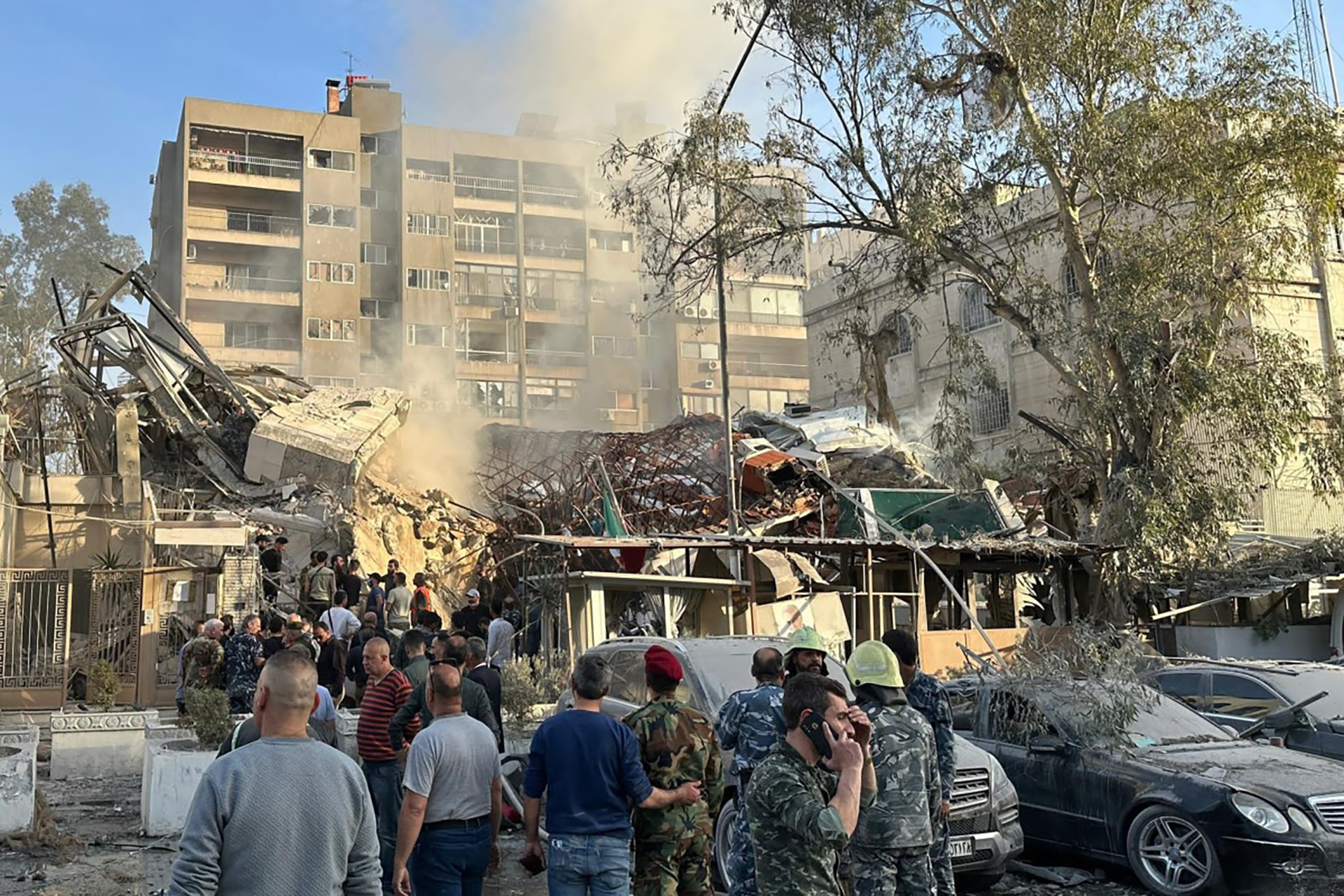Syrian emergency and security forces gather around the building next to the Iranian consulate in Damascus following the Israeli attack (French)
Con Coughlin, defense and foreign affairs editor of the British newspaper The Telegraph, says that the strong strike directed by Israel against the Iranian Revolutionary Guard and its agents in Syria revealed "the weakness of Tehran's deceptive leaders," according to him.
Coughlin began his article by justifying the Israeli attack on the Iranian consulate in Damascus on April 1, saying that the primary goal of this consulate was to serve as a command and control center for the Iranian Revolutionary Guard, enabling Tehran to operate its “terrorist” network throughout the Middle East. The heart of Damascus, according to him.
The writer claimed that this consulate has been operating since the Islamic Resistance Movement (Hamas) launched its attack on Israel on October 7 as a major regional command center, where it helped supervise the activities of the “axis of resistance: Hezbollah, Hamas, and the Houthis in Yemen, who confirmed their commitment to By destroying Israel."
He said the Israeli attack must be viewed in the context of an escalating proxy war between Iran and Israel that has intensified in recent months, and Israeli military activity has increased significantly since the Hamas attack, not least because Hezbollah and other Iranian-backed militias have used their bases in Syria and southern Lebanon to launch attacks. A series of missile attacks against Israel.
Israel is convinced that Iran will not respond directly
He said that one of Israel's main calculations in its willingness to attack Iranian targets in Syria is its conviction that Iran has no great desire for direct confrontation with Israel, and prefers to use its proxies, to do so.
The writer added that what is certain is that fears that Iran may “finally” rush to take revenge, after senior officials in the Iranian Revolutionary Guard warned that the Israeli measure will not go unanswered, have necessitated Israel canceling leave for all combat units and mobilizing more reserve soldiers for defense units. Aerial.
Iran did not retaliate for Soleimani's killing
However, Coughlin says, the extent to which Iran wants to escalate tensions in the region is a moot point. The last time the Iranian Revolutionary Guard suffered a major setback, when the administration of former US President Donald Trump assassinated the former commander of the Quds Force, Qassem Soleimani, in 2020, Iranian Supreme Leader Ali Khamenei pledged “severe revenge” in response, but in the end it was not implemented. The guide threatened him.
Likewise, the writer asserts, Iran will be wary of getting involved in a direct military confrontation, not least because the Israelis have made it quite clear that in the event of an Iranian attack, it will respond by destroying Hezbollah’s infrastructure in southern Lebanon and Syria, just as it does with Hamas in Gaza.
Source: Telegraph

